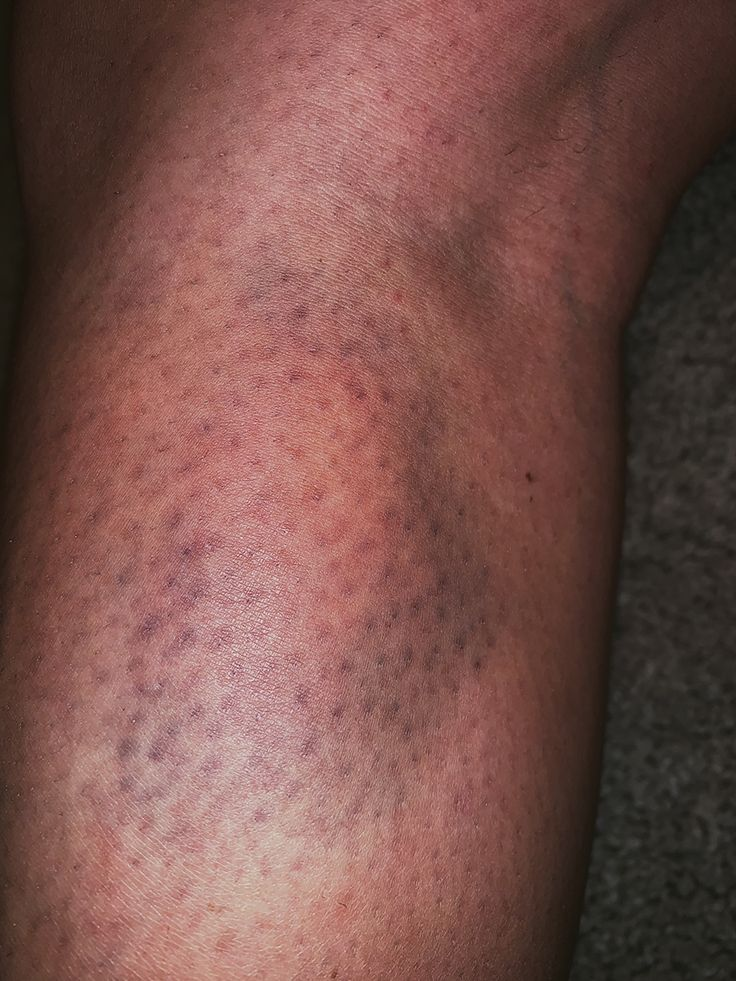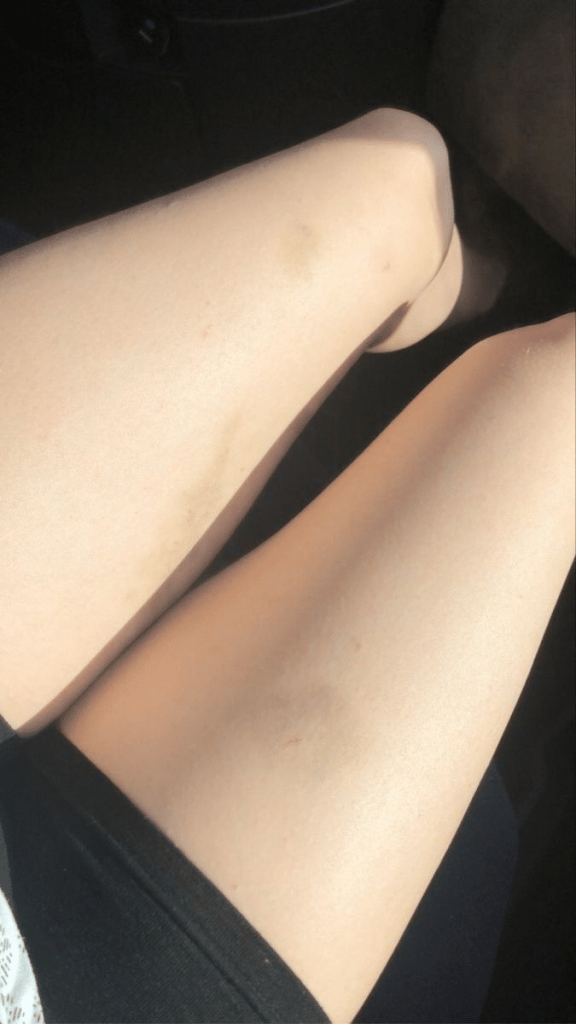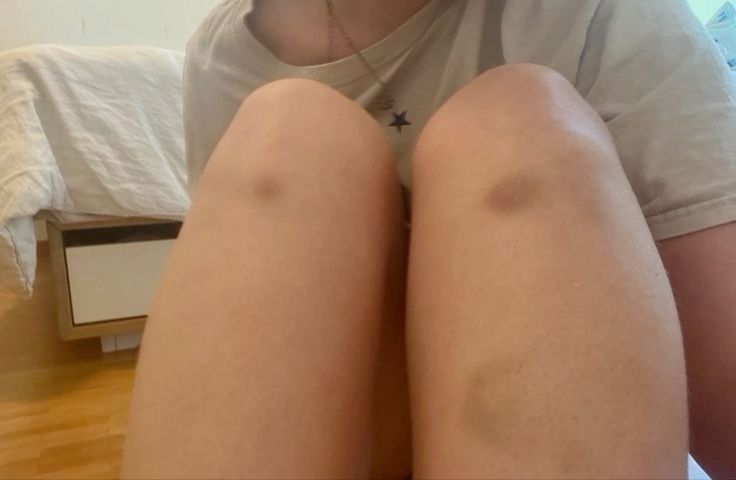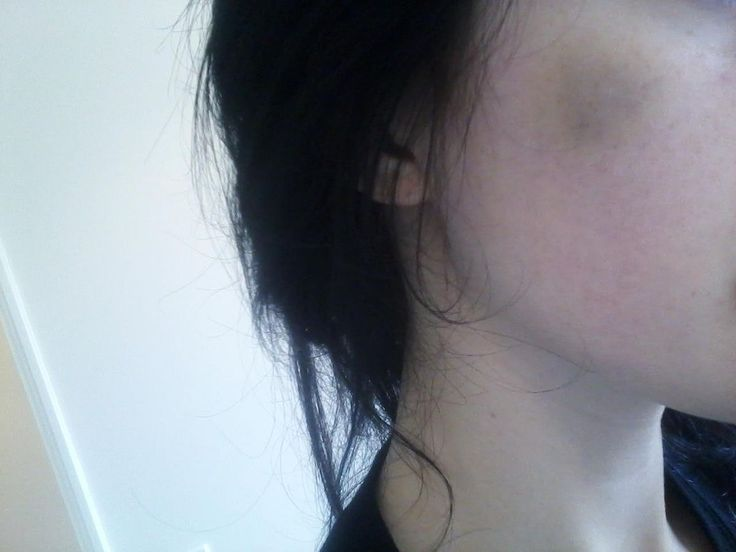
These marks, which begin dark blue or purple and then become yellow and green, can occasionally be an indication of a more serious problem that should not be disregarded.
Bruising occurs when trauma causes the capillaries, which are tiny blood vessels beneath the skin, to burst. This causes discolouration by allowing blood to seep into the surrounding tissues.
The most common causes of bruises are minor bumps and falls, but occasionally they happen excessively frequently or for no apparent reason.
Your body may be trying to tell you something if you’re getting bruises more frequently than usual or if they take a very long time to heal.

Vitamin deficiencies are a typical cause of severe bruising. For instance, the synthesis of collagen, which maintains the strength of blood vessels, depends on vitamin C. Bruising may result from capillaries breaking more easily due to a lack of vitamin C. Likewise, vitamin K is essential for blood coagulation.
If your body doesn’t have enough of it, it can have trouble stopping the bleeding beneath the skin, which could lead to a big, ugly bruise from even a small impact.
It is worthwhile to monitor your diet and increase your intake of fruits, vegetables, and leafy greens if you suspect a vitamin shortage.
Thrombocytopenia, a disorder characterised by a low platelet count, is another potential cause of unexplained bruising. Blood cells called platelets aid in blood clotting in the event of an injury.
Even the smallest pressure might result in bruises when platelet counts are low. Infections, autoimmune disorders, or even some drugs that prevent platelets from forming can all contribute to this illness.
It could be time to get a blood test done by a doctor if you regularly notice big bruises without remembering any injuries.

In relation to pharmaceuticals, did you realise that several popular over-the-counter prescriptions can also cause bruises? Anti-inflammatory drugs such as ibuprofen and aspirin can thin the blood, which facilitates the formation of bruises.
The same is true with blood thinners that are administered to treat heart problems or to stop strokes. It’s crucial to talk to your healthcare provider about any unexpected, unexplained bruises that appear on your body while taking these medications so that they can decide whether to change your dosage.
Excessive bruising may also be caused by liver illness. Blood doesn’t clot as effectively as it should when the liver isn’t working properly since it creates proteins that aid in blood coagulation.
Hepatitis and cirrhosis are two diseases that can impair liver function and make bruising easier. It’s critical to see a doctor if you’re also having symptoms like lethargy, skin discolouration, or swelling in addition to bruises.

Leukaemia, a type of blood cancer that impacts the synthesis of blood cells, including platelets, is another concerning illness that can result in recurrent bruising.
Patients with leukaemia experience significant bruising because their bodies are unable to manufacture enough platelets to clot blood efficiently.
Even though bruising by itself isn’t always a sign of leukaemia, you should definitely get help if you also have lethargy, recurrent infections, or unexplained weight loss.
Increased bruising may also be influenced by ageing. Our blood vessels are more susceptible to damage as we age because our skin thins and the layer of fat beneath it thins.
This implies that even small bumps can leave a lasting impression. Although this is a natural aspect of ageing, bruises can be lessened in severity by drinking plenty of water and eating a diet high in vitamins.
There are a few precautions you may take if you’re worried about persistent or inexplicable bruises.
First, examine your food more closely to make sure you’re receiving adequate iron, vitamin C, and vitamin K, among other vital nutrients. Discuss with your doctor whether any medications you take, such as blood thinners, may be causing your bruises.
Keep an eye out for any additional symptoms you might be having, and don’t be afraid to get medical help if something doesn’t feel right.

Bruises can occasionally be more than simply a cosmetic annoyance; your body has ways of telling you when anything is wrong.
Even though the majority of bruises are benign, severe or persistent bruises should never be disregarded. Your body can remain robust and resilient if you pay attention to these warning signs and make minor changes to your daily health regimen.
After all, developing a small level of awareness today can help avert future health problems.



